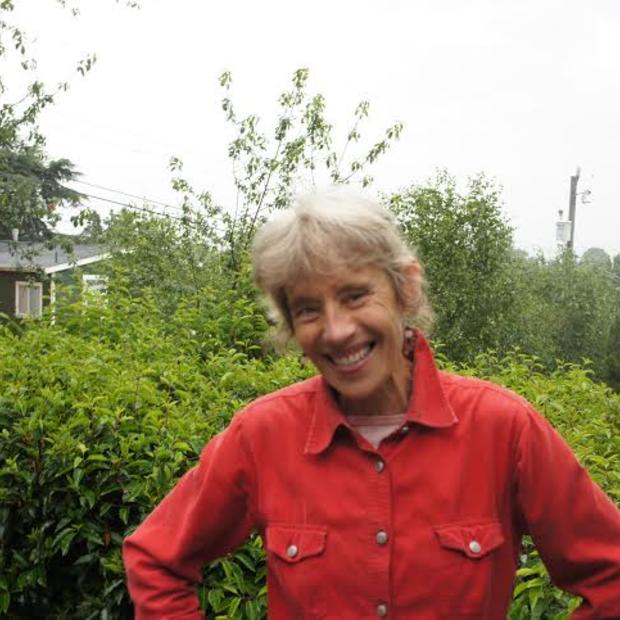"Pollution free prosperity," "fulfilling our clean energy future," and the "toxic-free kids act," are the environmental community’s top priorities for the 2012 legislative session. But whether they’ll be able to sustain them under the most intense attacks the community has seen in decades remains to be seen.
Click on the audio player above or here to listen.
The environmental community will be on the defensive in the early days of the 2012 legislative session. Addressing a Jan 7 gathering of activists ready to descend on Olympia to promote specific legislation, lobbyists say this year is different. “The crisis that we’re faced with and the list of fronts upon which we are defending is so broad and so big, it’s going to be very, very had to come up with a single list from day one of the legislative session saying here’s what you need to do.” Mo McBroom with the Washington Environmental Council says laws under attack include those that reduce and prevent toxic runoff, the biggest threat to Puget Sound and rivers across the state; the Growth Management and Shoreline Management acts, which reduce sprawl; I-937, the Clean Energy Initiative, which has seen billions in investment; climate change and water resources.
The approach will be to see what bills are introduced and gaining momentum. Three weeks into session, says McBroom, “we should know what are the bills that are real, the threats that we can kill easily and where do we need to put our campaign resources.”
Legislators who support the idea that a clean and healthy environment is foundation for the state’s prosperity, joined the work-out session. Sen. Sharon Nelson chairs the Senate Environmental Committee. “Right now what we’re hearing is that we need reform in government and part of that reform should be rolling back environmental regulations and I’m seeing a number of lists including stormwater.” Regulations, says Nelson, didn’t bring on the recession. “It’s due to the fact that Wall Street banks did mortgages which they never should have done and that we had two wars we were funding without a revenue stream.”
Revenue is critical to protect the environment and coalition building is critical to generate revenue, says Nelson. Main Street Washington, an organization which represents small to medium size businesses, understands the need for revenue because they want to jump start the economy, she says. “I see it as a good time to reach across to them just as did to labor and start broadening our coalition in Olympia.”
The Clean Energy Initiative, I-937, which holds the state’s major electrical utilities responsible for increasing new renewable energy, is also under attack. Since it was passed in 2006, $7 billion in renewable energy investments have been made across the state, many in struggling rural communities. “We certainly don’t want to dilute the law because it’s working, we’re making money for the state. We’re making money for local governments, schools and libraries. " Jessie Stanley is with the NW Energy Coalition. “It’s providing local jobs. You can’t outsource someone who is going to work on a wind farm. So it’s a success and that’s what we want you to be telling them.”
Steve Tharinger represents rural districts in Clallam County. He says environmental protections are less than 2 percent of the total budget. He says the Clean Energy Initiative is effective policy for moving the state forward, although it could use some tweaks.
Small utilities are worried about meeting their next clean energy requirements. They’d like to see the burden shared with transportation. “If the idea is to get us to a technology that is carbon neutral," Tharinger says, "then maybe we should focus some of that effort for renewables on the transportation piece.” Tharinger suggests electric or natural gas-based transit. He also favors a program to inspect whether vehicles leak oil. Such a program would go a long way to prevent hydrocarbons from running into waterways.
Sources of revenue to generate jobs and move the clean economy forward are a high priority at this environmental brainstorm session. Steve Zemke chairs the 41st District Democrats. He says numerous tax exemptions for business are crippling the state’s revenue stream. One is Microsoft’s exemption for software preparation and their facility at Moses Lake. “This last year their exemptions totaled over a hundred million dollars. At the same point Microsoft has over $50 billion in the bank.”
The problem with repeal is the state’s two-thirds rule for raising taxes and curbing exemptions. Gov. Chris Gregoire recently announced she’ll push the state Supreme Court to make a decision. Zemke says the court and Legislature have been timid in the past but points out that the state constitution only requires a majority vote. Zemke is circulating a new initiative to return to majority rule.
Whatever happens over the 60-day legislative session, the environmental community is poised for battle. It may be tough economic times, they say, but attacking environmental protections isn’t the solution.
For more information on the enviromental goals for the legisative session, go to environmentalpriorities.org.
Green Acre Radio is supported by the Human Links Foundation. Engineering by CJ Lazenby. Produced through the Jack Straw Foundation and KBCS.



